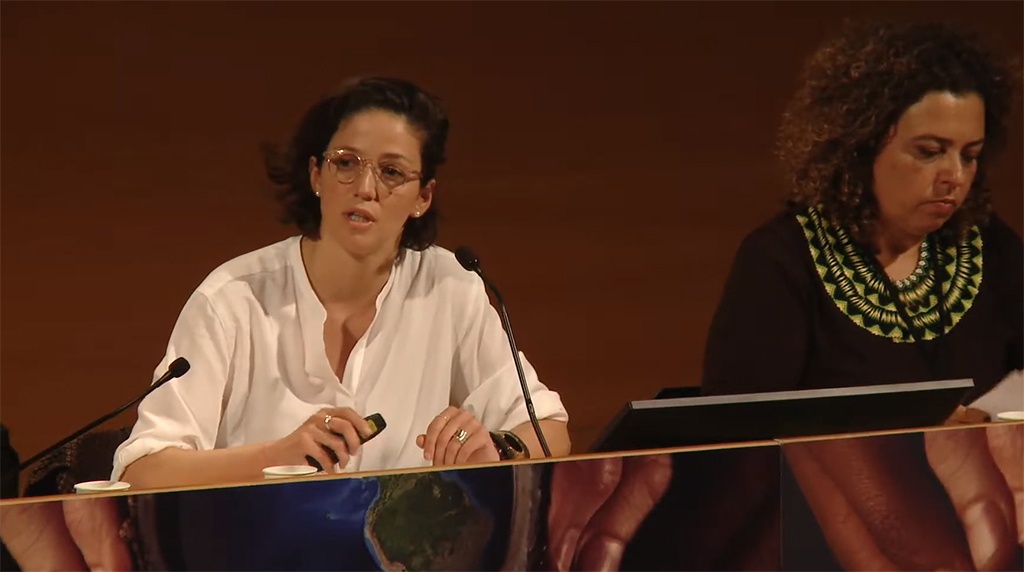The legality of ayahuasca
The panel called “Navigating the (il)legality of ayahuasca” was held by Natalia Rebollo, the Mexican lawyer who coordinates the ICEERS’s Ayahuasca Defense Fund program. She spoke at the 2019 World Ayahuasca Conference about the international trends her team observed with regards to legal incidents involving teacher plants.
Natalia is a Mexican lawyer specialized in International Human Rights Law by the American University Washington College of Law in D.C. She holds a Master’s Degree in Human Rights and Humanitarian Action from L’Institut d’études politiques de Paris. In 2015 she founded the Inter-Parliamentary Commission on Human Rights for Mexico and Central America, where she served as Technical Secretary for three years. From then on, she focused on addressing the systematic violations of human rights and the main challenges of drug-related issues in Mexico and the region. Subsequently, she was recognized for her leadership by the platform “Líderes Emergentes” as a promising figure in the Human Rights area for Mexico and Latin America.
Countries with legal incidents
Moreover, Natalia showed a map with the countries (like Spain, Russia and Israel) where there was a greater concentration of incidents related to the legality of ayahuasca at the moment. “In the past months and years we have detected that, legally speaking, there are three sets of sentences and resolutions that the authorities have interpreted,” Natalia asserted. For more information on the topic, please watch the video below.
NOTE ABOUT THE AUDIO: The translated audio you are listening to has NOT been dubbed nor is it a previously prepared speech delivery. It is a simultaneous translation recorded live during the conference, with all the inaccuracies that this might entail (simultaneous translation makes sense for immediate use only).
Categories:
ADF
, AYACONFERENCE
, HUMAN RIGHTS
Tags:
legality
, ayahuasca
, Human Rights
, Ayahuasca Defense Fund
, conference

